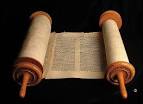Introduction to Joshua:
Welcome back, dear readers! I hope you enjoyed our prior study on the book of John. As we move into summer, I want to switch gears and take a look at one of the most popular and well-loved Old Testament books – Joshua.
Joshua is considered a historical book. It details the conquest of the Promised Land by the children of Israel. Let's examine some background information before we dive into this book.
Who wrote the book of Joshua? The scriptures do not name the official writer of this book. The Talmud (the book of Jewish civil and canonical law not included in the Pentateuch) maintains that Joshua son of Nun was indeed the author. The fact that the work bears his name is further proof of authorship. There are some incidents in this book that take place after the death of Joshua; the Talmud attributes these additions to either Eleazer or Phinehas who were priests back in that day.
If Joshua is indeed the author (which is likely), it gives this book the additional credibility of being written by an eyewitness to the accounts contained in the book.
It could also be true that after Joshua wrote this book under divine direction, it was 'updated' or put into its present form by someone else (possibly Ezra the scribe, after the captivity). Another theory suggests that it was penned by someone else entirely, using Joshua's journals or memoirs.
In any case, we know this history was divinely inspired, prepared and preserved so that we can benefit from it today.
When did the events of this book take place? This is a good question, and for the most part two answers are widely accepted.
Traditionally, the date for the conquest of the Promised Land has been established as around 1400 BC. This is based on the account of I Kings 6:1, which specifies that the fourth year of King Solomon's reign was the 480th year after the Exodus. Since the fourth year of Solomon's reign was about 966 BC, this puts the Exodus from Egypt at 1446 BC and the conquest of the Promised Land 40 years later, roughly 1400 BC.
The second theory has the Exodus at 1260 BC and the conquest of the Promised Land around 1220 BC. This theory is based on the Rameses of Exodus 1:11 being the historical Rameses II who lived around 1290 BC. This theory says that the 480 year period mentioned in I Kings does not represent an actual number, but 12 generations of 40 years. If that is the case, then the actual number could vary, because the definition of a 'generation' is sometimes as low as 25 years.
You can decide for yourself which theory you feel is correct. In either case, it is the events themselves that we should be concerned about, as opposed to the actual date they occurred.

What happens in this book? Joshua tells us the history of Israel under his command/government. He details the events pertaining to the entrance into the Promised Land, the actual conquest of Canaan, the division of the land among the 12 tribes of Israel, and the establishment of religion during that time. All of these events are successful due to the divine intervention of God.
Why did Joshua write this book and why was it included in the cannon of Scripture? The purpose of Joshua's writing seems to be two-fold:
- To show that God had been completely faithful in fulfilling his promise to give the land of Canaan to Abraham and his descendants. In other words, God kept his part of the covenant with Abraham.
- To show that God would bless his people only if they were obedient to his word; they must keep their side of the covenant in order to receive his blessings.
I believe we can also add a third item to this list. The examples of physical warfare in the book of Joshua give us insight into the spiritual warfare that the church should be engaged in today. Although Joshua did not know that as he wrote this book, I believe Holy Spirit knew that we would need this information in our day.
What are the theological themes found in this book? The book of Joshua has a lot to reveal about God. Here are some of the theological themes we will encounter as we study it:
- God is holy. He does not tolerate wickedness, sin or rebellion. The Canaanites are driven from the land because of wickedness; later Israel will be exiled from the land for the same reason.
- God is not only holy, he is also gracious and merciful. Anyone who turns from evil and seeks him will be spared. Examples of this in the book of Joshua are Rahab and the Gibeonites.
- God is the great Creator of all things; he is sovereign over nature. Because of that, he can work miracles in nature. An example of this is when the sun stands still as Israel battles her enemies.
- God is not only the creator, he is also the owner of the universe. The land is his to give to whom he will. He alone determines the boundaries of the nations in all ages.
- Although God is love, he is also the Lord of Hosts; he directs/determines wars and warfare. In the book of Joshua, we find that God fights for Israel in many ways. He provides strategy to Israel, he commands the actual battle and he assists his people with supernatural acts. In short, God gives victory to his people. (Again, I feel this applies to our generation in the spiritual realm.)

What about 'injustice'? The events in the book of Joshua took place under the Old Testament covenant. There we find a clear definition of God's laws, clear penalties for breaking them and clear rewards for keeping them. There is no question that God has defined right and wrong. While those who keep his laws will be blessed, those who choose to rebel against him will experience judgment.
In today's culture, people do not like to face the reality of right and wrong. In general, society is eager to affirm anything that anyone wants to do, regardless of God's laws. In fact, the more something opposes God's laws, the more they endorse it. They will completely condemn any teaching that seeks to define sin, and they will vehemently oppose anyone who differs with their opinion. They are not afraid to judge the God of the universe based on their own blind and foolish reasoning!
It is true that we now live in the age of grace. However, that does not give man the right to rebel against God. Sin is even more clearly defined in the New Testament as are the consequences for rejecting Christ and pursuing evil.
Grace defers the judgment of sin in order to allow mankind a chance to repent and find forgiveness, but if man chooses not to do so, he will suffer judgment just as those in the Old Testament did. (In the Old Testament, people suffered physical death because of sin, but under the age of grace, people are in danger of eternal spiritual death.)

One reason I bring up this truth, is that people in our culture have been taught to denounce or revile any form of judgment which they consider unjust. Think about it – 'injustice' is the catch phrase of our current culture! But people do not have the authority to judge; God does. In the book of Joshua, we will see that God endorsed the deaths of men, women and children. Entire cities and people groups were to be completely destroyed in judgment.
Modern day sinners will revile their destruction as hateful and unjust. However, keep in mind that people do not have possession of all the facts; they never have been and never will be in a position to question God's judgment.
Furthermore, it is clear that God did not destroy people just to give Israel the land. The Canaanites were destroyed because of their own wickedness. And God was not partial to Israel; they too were eventually slaughtered and removed from the land because of sin. Rather than denouncing the justice of God, people should be grateful for the warning of judgment which we find in the books of the Old Testament.
God's severity in the judgment of sin is the counterpart of his infinite grace and love. As we studied in the book of John, God so loved the world, he sent his only Son Jesus to earth to atone for our sin:
John 3:16 – For God so loved the world that he gave his only Son, that whoever believes in him should not perish but have eternal life.
As a Christian, you may still have lingering questions regarding some of the concepts and actions which occurred in the Old Testament in general or the book of Joshua in particular. All I can tell you is that God is perfect in all that he does. We don't understand everything fully now, but you can ask God for clarification in eternity.

In the meantime, let us endeavor to serve Christ, who gave himself as a sacrifice for our sin, so we could enjoy the many blessings of God as his children.
I believe our study of Joshua is going to be encouraging, enlightening, thought provoking and beneficial! Thank you for joining me in this study!

